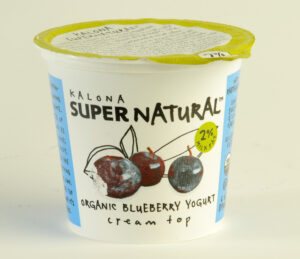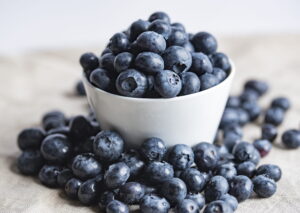In today’s fast-paced world, maintaining a robust immune system is more important than ever. Our immune system acts as a vigilant defense mechanism, protecting us from harmful pathogens and supporting overall health. One effective way to bolster your immune system is by incorporating nutrient-rich superfoods into your diet. These superfoods are packed with essential vitamins, minerals, and antioxidants that help strengthen immune function and promote well-being.
In this article, we’ll explore ten powerful superfoods known for their immune-boosting properties. From citrus fruits brimming with vitamin C to garlic renowned for its immune-enhancing compounds, these foods offer a tasty and healthful way to support your body’s natural defenses. By integrating these superfoods into your daily meals, you can enjoy their myriad benefits and give your immune system the support it needs to keep you healthy and vibrant. Let’s dive into the top 10 superfoods that can help elevate your immune health.
1. Citrus Fruits

(pickpik.com)
Citrus fruits such as oranges, grapefruits, lemons, and limes are well-known for their high vitamin C content. This essential nutrient plays a crucial role in maintaining a healthy immune system. Vitamin C, also known as ascorbic acid, is a powerful antioxidant that helps protect cells from damage caused by free radicals. Free radicals are unstable molecules that can cause oxidative stress, leading to inflammation and weakening of the immune system. By neutralizing these harmful molecules, vitamin C helps keep the immune system functioning optimally.
In addition to its antioxidant properties, vitamin C is vital for the production and function of white blood cells, which are essential for fighting infections. White blood cells, including neutrophils, lymphocytes, and phagocytes, are the body’s primary defense against pathogens such as bacteria and viruses. Vitamin C enhances the ability of these cells to respond to infections, improving their ability to detect, engulf, and destroy harmful invaders. Regular consumption of citrus fruits ensures a steady supply of vitamin C, which can help reduce the severity and duration of common colds and other infections.
Moreover, citrus fruits are rich in flavonoids, a group of phytonutrients that have been shown to further enhance immune function. Flavonoids, such as hesperidin and quercetin, possess anti-inflammatory, antiviral, and antioxidant properties. These compounds work synergistically with vitamin C to bolster the immune system. For instance, flavonoids can improve the absorption and utilization of vitamin C in the body, ensuring that it reaches the cells where it is needed most. Additionally, flavonoids can modulate immune responses, reducing excessive inflammation that can damage tissues during infections.
Incorporating citrus fruits into your daily diet is easy and delicious. Oranges and grapefruits make excellent snacks, while lemons and limes can be used to add a zesty flavor to water, salads, and various dishes. Starting your day with a glass of freshly squeezed orange juice or adding lemon slices to your tea are simple ways to boost your vitamin C intake. By making citrus fruits a regular part of your meals, you can enjoy their refreshing taste while reaping the numerous health benefits they offer. Regular consumption of these fruits not only supports immune health but also contributes to overall well-being, making them a valuable addition to any diet.
2. Garlic
(freerangestock.com)
Garlic has been revered for its medicinal properties for centuries, with ancient civilizations utilizing it for its health benefits. This pungent bulb is a staple in many culinary traditions, but its value extends far beyond flavor. At the heart of garlic’s health benefits is a compound called allicin, which is known for its potent immune-boosting properties. Allicin is released when garlic is crushed or chopped, initiating a series of reactions that enhance its medicinal properties.
Allicin is a powerful antimicrobial agent, capable of combating a variety of pathogens including bacteria, viruses, and fungi. This compound has been shown to enhance the immune system by stimulating the activity of white blood cells, such as macrophages, lymphocytes, and natural killer cells. These cells play a crucial role in the body’s defense against infections, identifying and destroying harmful invaders. By enhancing the function of these cells, allicin helps the body respond more effectively to infections and diseases.
Regular consumption of garlic has been linked to a reduced risk of catching colds and other common infections. Studies have shown that individuals who incorporate garlic into their diet experience fewer colds, and when they do fall ill, their symptoms are generally less severe and of shorter duration. This makes garlic a valuable ally during cold and flu season. Additionally, garlic’s anti-inflammatory properties help reduce the severity of symptoms associated with infections, making it easier for the body to recover.
To maximize the health benefits of garlic, it is essential to prepare it properly. Crushing or chopping garlic and allowing it to sit for a few minutes before cooking facilitates the formation of allicin. This process ensures that the beneficial compounds are fully activated and available for absorption. Adding raw or lightly cooked garlic to salads, dressings, and other dishes can help preserve its medicinal properties. By incorporating garlic into your daily diet, you can take advantage of its immune-boosting benefits and enjoy better health and well-being.
3. Ginger

(flickr.com)
Ginger is another superfood with potent anti-inflammatory and antioxidant properties. This versatile root has been used for centuries in traditional medicine and culinary practices for its unique flavor and numerous health benefits. At the core of ginger’s medicinal properties is gingerol, a bioactive compound responsible for its distinctive spicy aroma and therapeutic effects. Gingerol has powerful anti-inflammatory and antioxidant effects that help protect the body from damage and reduce the risk of chronic diseases, making ginger an essential ingredient for enhancing immune health.
One of the primary benefits of ginger is its ability to reduce oxidative stress, which occurs when there is an imbalance between free radicals and antioxidants in the body. Oxidative stress can lead to chronic inflammation, which weakens the immune system and contributes to various health issues. Gingerol helps neutralize free radicals, protecting cells and tissues from damage and supporting overall immune function. Additionally, ginger’s anti-inflammatory properties can help soothe sore throats and reduce symptoms associated with respiratory infections, making it a valuable ally during cold and flu season.
Ginger is also renowned for its effectiveness in alleviating nausea and digestive discomfort. It has been widely used as a natural remedy for motion sickness, morning sickness during pregnancy, and nausea caused by chemotherapy. The compounds in ginger help relax the gastrointestinal tract and improve digestion, which can be particularly beneficial when the immune system is compromised. By promoting a healthy digestive system, ginger indirectly supports immune health, as a significant portion of immune function is linked to gut health. This makes ginger a well-rounded superfood for maintaining overall wellness.
Adding ginger to your diet is a simple way to boost the flavor of a wide range of dishes. Fresh ginger can be grated into teas, smoothies, and juices, providing a spicy kick and numerous health benefits. It can also be added to soups, stir-fries, and marinades to enhance flavor and nutritional value. Ginger tea, made by steeping fresh ginger slices in hot water, is a soothing and warming beverage that can help ward off colds and soothe sore throats. For a refreshing twist, try adding ginger to your favorite lemonade or incorporating it into homemade salad dressings. By making ginger a regular part of your diet, you can enjoy its delicious taste and significant health benefits.
4. Spinach

(flickr.com)
Spinach is a nutritional powerhouse loaded with essential vitamins and minerals that play a crucial role in supporting the immune system. This leafy green is rich in vitamin C, a vital antioxidant that helps protect cells from damage caused by free radicals. Vitamin C also enhances the production of white blood cells, which are essential for fighting off infections. Additionally, spinach provides vitamin A, another critical nutrient for immune health. Vitamin A helps maintain the integrity of skin and mucosal cells, which serve as the body’s first line of defense against pathogens.
In addition to vitamins C and A, spinach is an excellent source of folate, a B vitamin that is essential for the production and repair of DNA and RNA. Folate supports the rapid production of immune cells and is particularly important during times of infection when the body needs to ramp up its immune response. Spinach also contains other B vitamins, such as B6 and B2, which play supportive roles in maintaining a healthy immune system. By including spinach in your diet, you can ensure that your body has the necessary nutrients to maintain a robust immune defense.
Spinach is also rich in antioxidants and beta-carotene, which further boost the immune system’s ability to fight infections. Beta-carotene, a precursor to vitamin A, enhances the function of immune cells and helps protect them from oxidative damage. The antioxidants in spinach, including flavonoids and polyphenols, help neutralize harmful free radicals and reduce inflammation in the body. This combination of nutrients and antioxidants makes spinach an excellent food for bolstering immune health and reducing the risk of chronic diseases.
To fully benefit from spinach’s health advantages, it’s important to consider its preparation method. Lightly cooking spinach can increase its vitamin A content and enhance the absorption of other nutrients. Cooking also helps reduce oxalic acid, which can hinder the absorption of calcium and iron. Brief steaming or sautéing preserves its nutritional value while improving the body’s ability to utilize its beneficial compounds. Incorporating spinach into soups, stews, smoothies, and salads is an easy way to include this nutrient-rich superfood in your diet, ensuring you gain its full spectrum of health benefits.
5. Yogurt

(flickr.com)
Yogurt is an excellent source of probiotics, the beneficial bacteria that play a crucial role in maintaining a healthy gut. These live microorganisms contribute to a balanced gut microbiome, which is essential for optimal immune function. The gut is home to a significant portion of the immune system, with gut-associated lymphoid tissue (GALT) playing a key role in the body’s defense against pathogens. By supporting a healthy gut microbiome, yogurt helps enhance the body’s ability to fight off infections and maintain overall health.
Probiotics in yogurt work by promoting the growth of beneficial bacteria while inhibiting the growth of harmful bacteria in the gut. This balance is crucial for preventing infections and reducing inflammation. Studies have shown that regular consumption of probiotic-rich foods like yogurt can improve gut health, leading to a stronger immune response. Probiotics help stimulate the production of antibodies and increase the activity of certain immune cells, such as T-lymphocytes and natural killer cells, which are vital for identifying and destroying harmful invaders.
For the best health benefits, it is important to choose yogurt with live and active cultures. These cultures ensure that the yogurt contains a sufficient amount of probiotics to positively impact gut health. Plain, unsweetened yogurt is the healthiest option, as it contains no added sugars that can counteract the benefits of probiotics. Adding fresh fruits or a drizzle of honey to plain yogurt can provide natural sweetness and additional nutrients, enhancing both flavor and health benefits.
Including yogurt in your daily diet is easy and adaptable. You can have it as a quick breakfast or snack, or use it as a base for smoothies, salad dressings, and dips. Yogurt also works well in baked goods, soups, and sauces to enhance their nutritional value. Regularly consuming yogurt supports a healthy gut microbiome and boosts your immune system, helping to fend off infections and promote overall well-being.
6. Almonds

(pexels.com)
Almonds are a powerhouse of nutrition, packed with vitamin E, an essential antioxidant that plays a vital role in maintaining a healthy immune system. Vitamin E helps protect immune cells from oxidative damage caused by free radicals, ensuring that they function optimally. This protection is crucial for maintaining the integrity and effectiveness of the immune response, particularly in combating infections and diseases. By incorporating almonds into your diet, you can provide your body with a substantial portion of the daily recommended intake of vitamin E.
In addition to vitamin E, almonds are rich in healthy fats, particularly monounsaturated fats, which are beneficial for heart health and overall well-being. These fats help reduce inflammation and support the immune system by promoting the absorption of fat-soluble vitamins, including vitamin E. The presence of protein and fiber in almonds also contributes to their nutritional value, making them a well-rounded snack that supports sustained energy levels and satiety. This combination of nutrients not only boosts immune health but also supports overall physical health.
A handful of almonds, roughly 23 nuts or about one ounce, provides a significant portion of the daily recommended intake of vitamin E. This makes it easy to incorporate almonds into your diet as a convenient and nutritious snack. Whether eaten on their own, added to salads, or included in trail mixes, almonds offer a versatile and delicious way to enhance your nutrient intake. Their rich, nutty flavor pairs well with both sweet and savory dishes, making them a versatile addition to a balanced diet.
Regular consumption of almonds can help improve overall health by supporting various bodily functions. The fiber in almonds aids in digestion and promotes gut health, which is closely linked to immune function. Moreover, the protein content in almonds supports muscle repair and growth, contributing to overall physical resilience. By making almonds a regular part of your diet, you not only boost your immune system but also benefit from their numerous other health-promoting properties. Enjoying a handful of almonds each day can be a simple yet effective way to support your immune health and overall well-being.
7. Turmeric

(commons.wikipedia)
Turmeric, a vibrant yellow spice, has been celebrated for its medicinal properties for thousands of years, particularly in traditional Indian and Chinese medicine. The primary bioactive compound in turmeric is curcumin, which is known for its powerful anti-inflammatory and antioxidant effects. Curcumin has been extensively studied for its ability to modulate the immune system, making turmeric a valuable addition to any diet aiming to boost overall health and immunity. By incorporating turmeric into your meals, you can leverage its health benefits to support a robust immune system.
Curcumin works by activating certain immune cells and inhibiting inflammatory molecules, thus helping to regulate the body’s immune response. Chronic inflammation can weaken the immune system and lead to various health issues, but curcumin’s anti-inflammatory properties help counteract this effect. By reducing inflammation, curcumin helps maintain the body’s defense mechanisms and enhances the ability to fight off infections and diseases. Additionally, curcumin’s antioxidant properties protect immune cells from oxidative damage, ensuring they function optimally.
Research has shown that curcumin can help modulate the activity of various immune cells, including T cells, B cells, and natural killer cells. These cells play crucial roles in identifying and eliminating pathogens, as well as in orchestrating the overall immune response. By supporting the function of these cells, curcumin enhances the body’s ability to respond effectively to infections and maintain a balanced immune system. This makes turmeric an essential component of a diet focused on immune health.
Incorporating turmeric into your diet is simple and can be done in various delicious ways. Turmeric’s warm, earthy flavor complements a wide range of dishes, from curries and soups to teas and smoothies. Adding a teaspoon of turmeric to your favorite recipes can provide an immune-boosting kick while enhancing the flavor and nutritional profile of your meals. For improved absorption of curcumin, pair turmeric with black pepper, which contains piperine, a compound that enhances curcumin’s bioavailability. By regularly including turmeric in your diet, you can take advantage of its powerful health benefits and support a strong and resilient immune system.
8. Green Tea

(pexels.com)
Green tea is widely recognized for its health benefits, primarily due to its rich content of antioxidants. One of the most notable antioxidants in green tea is epigallocatechin gallate (EGCG). EGCG has been extensively studied for its ability to enhance immune function by protecting cells from oxidative stress and damage caused by free radicals. This protection is crucial for maintaining a healthy immune system and reducing the risk of chronic diseases. By neutralizing harmful molecules, EGCG supports overall immune health and promotes cellular longevity.
In addition to EGCG, green tea contains the amino acid L-theanine, which plays a significant role in supporting immune health. L-theanine has been shown to aid in the production of germ-fighting compounds within T-cells, a type of white blood cell essential for the immune response. These compounds help the body effectively combat infections and maintain a balanced immune system. The synergistic effect of EGCG and L-theanine makes green tea a powerful beverage for bolstering immune defense and overall well-being.
Regular consumption of green tea can provide ongoing protection against cellular damage, supporting a healthy immune system over time. Drinking green tea daily can help enhance your body’s antioxidant levels and improve its ability to respond to infections. Whether enjoyed hot or iced, green tea offers a refreshing and healthful way to incorporate more antioxidants into your diet.
Integrating green tea into your daily habits is easy and adaptable. It can be consumed as a standalone beverage or used as a base for smoothies and flavored iced teas. For those seeking additional health benefits, consider adding a slice of lemon or a touch of honey to your green tea. By making green tea a regular part of your diet, you can take advantage of its immune-supportive properties and contribute to a healthier, more resilient immune system.
9. Blueberries
(pickpik.com)
Blueberries, often referred to as a superfood, are small yet incredibly powerful when it comes to supporting immune health. These vibrant berries are packed with antioxidants, particularly flavonoids, which play a crucial role in reducing oxidative stress and inflammation. Flavonoids, such as quercetin and anthocyanins, help neutralize free radicals that can damage cells and contribute to chronic diseases. By mitigating oxidative stress, blueberries support a healthy immune system and contribute to overall well-being.
In addition to their antioxidant properties, blueberries are rich in vitamins C and K. Vitamin C is essential for the production and function of white blood cells, which are key players in the immune response. It also helps protect immune cells from oxidative damage, enhancing their ability to fight infections. Vitamin K plays a role in regulating inflammation and supporting overall immune function. Together, these vitamins help maintain a robust immune system and support overall health.
Blueberries also provide manganese and dietary fiber, adding to their nutritional profile. Manganese is a trace mineral that supports various metabolic processes, including those involved in immune function. Dietary fiber aids in maintaining a healthy digestive system, which is closely linked to immune health. A healthy gut microbiome, supported by dietary fiber, can enhance the body’s immune response and overall health.
Incorporating blueberries into your daily diet is both easy and delicious. A handful of fresh or frozen blueberries can be added to smoothies, yogurt, oatmeal, or salads, providing a flavorful and nutritious boost. Their natural sweetness makes them a versatile ingredient that pairs well with a variety of dishes. By regularly including blueberries in your diet, you can enjoy their health benefits while supporting a strong and resilient immune system.
10. Shellfish

(pxhere.com)
Shellfish, including oysters, crab, and mussels, are renowned for their high zinc content, making them an excellent choice for supporting immune health. Zinc is a vital mineral that plays a crucial role in the development and function of immune cells. It is involved in various immune processes, including cell division, differentiation, and communication. By ensuring adequate zinc intake, shellfish can help enhance the immune system’s ability to fight off invading bacteria and viruses, thereby supporting overall immune function.
Oysters, in particular, are one of the richest sources of zinc, with just a few servings providing more than the daily recommended intake of this essential mineral. Zinc is critical for the production of white blood cells, which are responsible for identifying and neutralizing pathogens. Additionally, zinc contributes to the proper functioning of T-cells, a type of white blood cell that plays a key role in the immune response. By including zinc-rich shellfish in your diet, you can help maintain a strong and responsive immune system.
Crab and mussels also offer significant amounts of zinc, along with other beneficial nutrients such as protein, omega-3 fatty acids, and vitamins. These nutrients work together to support overall health and contribute to a well-functioning immune system. The protein in shellfish aids in the repair and regeneration of tissues, while omega-3 fatty acids have anti-inflammatory properties that can further support immune health. Incorporating a variety of shellfish into your diet can provide a range of essential nutrients that enhance immune function.
While shellfish can be a valuable addition to a balanced diet, it is important to consume them in moderation and be mindful of potential allergens. Some individuals may be allergic to shellfish, which can cause adverse reactions. Additionally, shellfish should be sourced from reputable suppliers to ensure they are fresh and free from contaminants. By enjoying shellfish as part of a varied and balanced diet, you can benefit from their rich zinc content and support your immune health effectively.
Conclusion,
Incorporating superfoods into your diet is a proactive and delicious way to support your immune system. By adding nutrient-dense foods like citrus fruits, garlic, ginger, spinach, yogurt, almonds, turmeric, green tea, blueberries, and shellfish, you can provide your body with the essential vitamins, minerals, and antioxidants needed to enhance immune function and overall health. These superfoods not only offer a range of health benefits but also add variety and flavor to your meals.
Maintaining a strong immune system is crucial for warding off illnesses and staying healthy. By making these superfoods a regular part of your diet, you can help fortify your body’s natural defenses, improve your resilience against infections, and promote overall well-being. Embrace these nutrient-packed foods and enjoy the healthful benefits they bring to your daily routine. With a balanced diet rich in these superfoods, you’re not just eating for taste—you’re eating for health.





